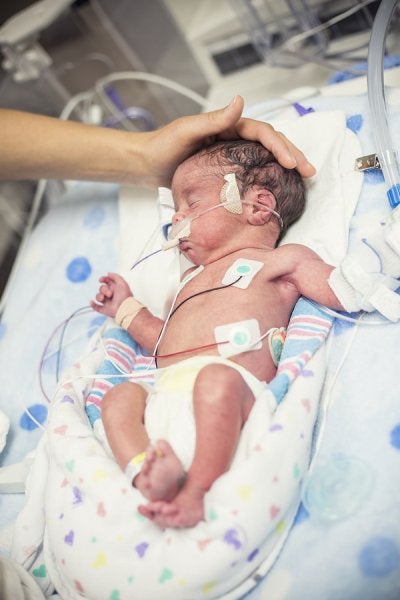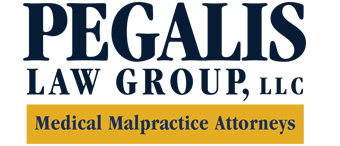-
How Proactive Patients Can Reduce the Risk of Medical Errors
It’s the responsibility of healthcare providers to ensure the safety and well-being of their patients. Unfortunately, acts of medical malpractice and negligence happen every day around the country. Patients can protect themselves by being proactive about identifying and preventing medical errors.
 Background Check
Background Check You may not always get to choose your doctor, such as when you’re taken to the emergency room. When you do have a choice, take a few minutes to research the doctor’s background. The ideal healthcare provider will have:
- Training at respectable institutions
- Board certification in his or her specialty
- No professional disciplinary actions
- No consistent history of prior medical malpractice lawsuits
If you’ll be undergoing surgery or another complex treatment, such as treatment of cancer, take a close look at the doctor’s level of experience. For instance, if you’ll be having hip replacement surgery, don’t be afraid to ask your orthopedic surgeon how many of these surgeries he/she has performed, and what is their particular complication/success rate.
Informed Consent
Before having a medical procedure, such as surgery, your doctor is required to obtain your informed consent. In other words, you have the legal right to be fully informed of every aspect of your treatment, including the potential risks and alternatives. You also have the right to reject a proposed treatment after weighing the pros and cons of the plan of care. If you’re uncomfortable with your treatment plan, you can continue to ask questions, learn about your diagnosis and the treatment, and seek a second opinion from another healthcare provider.Medication Safety
Medication errors are a common type of malpractice. A mistake can occur at any point in the process—from the doctor’s initial prescribing information to the pharmacist’s dispensing actions to the nurse who administers the medicine in the hospital. Before taking any medication, make sure the prescribing doctor has your full health history. If you’re receiving medication in the hospital, ask the nurse to verify the name and dosage of the drug, cross-referenced with your patient records and your medications you are takingAt Pegalis & Erickson, LLC, we’ve made it our life’s work to tirelessly advocate on behalf of patients on their families. Contact our malpractice law firm on Long Island, New York at (516) 684-2900 if you think you’ve been affected by an act of medical negligence. Some of our negligence and wrongful death lawsuits have resulted in multimillion-dollar jury awards for our clients.
-
What Are the Benefits of Seeking a Second Opinion After a Diagnosis?
It isn’t always necessary to get a second opinion. Common, relatively minor medical problems like sinus infections and pink eye have straightforward treatment regimens that are widely accepted by medical professionals. But in some cases, a second opinion can prove invaluable. Medical malpractice lawyers recommend getting a second opinion after a diagnosis of any potentially life-threatening, disabling, complex, or rare condition.
Second opinions reduce the risk of a misdiagnosis.
Doctors have advanced education and training, but they’re still capable of making mistakes. It’s possible for another doctor to see something that the original physician overlooked. By talking to another physician, you’ll learn whether the initial diagnosis was made without the benefit of various lab tests and imaging scans that you should have had. The second doctor might even discover that appropriate tests were ordered, but were somehow left out of your records, and so they weren’t considered when the initial diagnosis was made. You’ll discover the original doctor’s level of confidence in the diagnosis.
You’ll discover the original doctor’s level of confidence in the diagnosis.
Good doctors aren’t offended when their patients inform them that they are seeking a second opinion. On the contrary, most doctors should welcome the idea, as it means their patients are proactive, and they are truly getting involved in their own healthcare. Plus, a doctor who has full confidence in his or her diagnosis will also have confidence that another doctor will confirm the diagnosis. If your doctor attempts to dissuade you from talking to another physician, this could be an indicator that getting a second opinion is imperative, and also that you may want to switch doctors.You’ll get more information about your diagnosis.
Even if the initial diagnosis is correct, getting another opinion can still be beneficial. Some patients talk to another physician when they aren’t fully satisfied with the information given to them. Another doctor can help address your questions more thoroughly, and he or she can discuss your treatment options with you.Medical negligence lawyers serving patients in New York urge families to seek a second opinion after any major diagnosis. Unfortunately, it’s still possible to be affected by medical malpractice even after taking steps to protect yourself. If you feel you could benefit from our legal advocacy services, please don’t hesitate to call us at (516) 684-2900.
-
Understanding the Difference Between Mistakes and Malpractice
The legal definition of medical malpractice is often misunderstood. Most doctors, nurses, and medical technicians genuinely try to do their best for their patients, but they’re human and mistakes do happen from time to time. However, the literal definition of medical malpractice is bad practice. Not every medical mistake rises to the level of a legal medical malpractice action. A medical mistake is an incorrect act or an act of omission. For example, a nurse may misread a doctor’s written instructions, and give a patient too much or too little of a medication.
 If the patient suffers no harm as the result of the medication error, then it’s merely a mistake which fortunately did not cause harm. Malpractice occurs when a healthcare provider makes a mistake or commits an act or an omission that deviates from the accepted standard of care, and causes harm to the patient.
If the patient suffers no harm as the result of the medication error, then it’s merely a mistake which fortunately did not cause harm. Malpractice occurs when a healthcare provider makes a mistake or commits an act or an omission that deviates from the accepted standard of care, and causes harm to the patient. Medical malpractice cases across New York are what we handle here at Pegalis & Erickson, LLC. Call (516) 684-2900 to request your free case review at no charge.
-
What Is the First Thing You Should Do if Your Child Is Injured During Childbirth?
Some birth injuries require immediate care, such as oxygen deprivation to the baby’s brain. After any sort of birth trauma is diagnosed, the first step to take is to ensure that your child gets the medical treatment he or she needs. Depending on your child’s specific condition, he or she may be admitted to the neonatal intensive care unit (NICU). Each hospital’s policies are a little different, but in general, parents can see their baby in the NICU as soon as the newborn has been stabilized and settled in. A nurse or patient navigator will explain what to expect from your child’s stay in the NICU.
 Once your baby is stabilized and the situation has calmed down, you should have a longer, in-depth conversation with the healthcare providers, which includes the neonatologist in charge of the NICU, who are treating your child. Take notes and ask plenty of questions. Ask whether your baby should have any additional medical tests or treatments, or should be seen by other specialists such as infectious diseases, pulmonology, cardiology, ophthalmology, and neurology, depending on the situation.
Once your baby is stabilized and the situation has calmed down, you should have a longer, in-depth conversation with the healthcare providers, which includes the neonatologist in charge of the NICU, who are treating your child. Take notes and ask plenty of questions. Ask whether your baby should have any additional medical tests or treatments, or should be seen by other specialists such as infectious diseases, pulmonology, cardiology, ophthalmology, and neurology, depending on the situation. Families affected by birth trauma near Long Island, New York can turn to the medical malpractice lawyers at Pegalis & Erickson, LLC. Call (516) 684-2900 for the answers to your legal questions.
Recent Posts
Popular Posts
- Annamarie Bondi-Stoddard Named One of The Top Attorneys by New York Metro Super Lawyers!
- A Look at Common Orthopedic Birth Injuries
- Steve Erickson named only Lawyer of the Year on Long Island, NY for Personal Injury Litigation
- Reducing the Risk of Medical Malpractice
- How Improper Prenatal Care Can Lead to Birth Injuries
categories
- Uncategorized
- Infographic
- Patient Safety
- Patient Health
- Stillbirth
- Birth Injuries
- Medical Malpractice
- Medical Negligence
- Event
- Erb's Palsy
- Injury
- ER
- Video
- Cancer Misdiagnosis
- Medication Errors
- Cerebral Palsy
- Medical Negligence Lawyer
- Anesthesia Injuries
- Brachial Plexus
- Prostate Cancer
- About Us
- Men's Health
- Skin Cancer
- Breast Cancer
- Misdiagnosis
